- Home
- Lisa Smedman
The Gilded Rune (forgotten realms) Page 3
The Gilded Rune (forgotten realms) Read online
Page 3
He peered past the chain at Torrin. “Got it?” he asked.
“Almost,” Torrin said-a word that was about as close to the truth as mud was to a diamond. “You went a little fast.”
“Think you can do it?” Frivaldi asked.
Torrin nodded, not wanting to admit otherwise.
Frivaldi clanked the pieces back together, resetting the puzzle, and put the tangled mass on the table between them. “I’m going to make you an offer. Untangle that, and I’ll give you the coin you need to pay for the loremaster.”
Torrin’s pulse quickened. “You’re serious?”
Frivaldi smiled. “Have you ever known me to say something I don’t mean?”
“Not in this lifetime,” Torrin said with a grin. He picked up the puzzle and worked the pieces back and forth, back and forth, pursing his lips ever tighter as the right combination continued to elude him. At one point he thought he had it-six of the center pieces fell apart from the rest to form a linked chain-but the next twist brought them back together again.
He persevered, his ale forgotten, only dimly aware that Frivaldi had risen to refill his own mug. Frivaldi returned to the table and sat down again, his arms folded across his chest. Torrin noted that a handful of other Delvers had followed. He heard them talking softly behind him, and the clink of coins changing hands. His determination grew as he realized they were wagering on the outcome. A bead of sweat trickled down his temple and dripped onto the table. He kept working at the puzzle, and working at it, but at last he realized it was no use. He threw the clanking mass down on the table in disgust.
The other Delvers laughed or groaned, depending upon the bet placed, and coin changed hands. As they drifted back to their seats, Frivaldi uncrossed his arms and picked up the puzzle.
“Go easy on yourself, Torrin,” the Delvemaster said. “This puzzle is something even the most deft-fingered rogue would have trouble with. It took me years to learn it.”
“You knew I’d fail,” Torrin said.
“I knew it was highly likely. More to the point, I hoped you’d learn that life rarely offers us instant, easy solutions to the problems we encounter. That was something I had to learn the hard way by trial and error-and some of them were expensive errors.”
Frivaldi set the puzzle aside and took a sip of his ale. “Did I ever tell you about Durin, and the very first delve I partnered with him on, more than a century ago?”
Torrin nodded. It was Frivaldi’s favorite story. “Many times.”
“I thought he was a plodding old fool,” Frivaldi said. “All those stupid acronyms. Did you know he wrote an entire chapter of the Delver’s Tome-the one on standard delving procedures?”
“Yes. Basics of Reconnoitering and Exploration. BORE. The chapter you’re always quoting from.”
“What I didn’t realize, back then, was that his acronyms were deliberately ridiculous. They stick in the mind better, that way.”
“You also said you refused to heed them.”
“That’s true. And I’m still just as impatient as I ever was. But I don’t expect instant solutions, the way I once did. And when I delve, I always make sure I partner with someone who delves like Durin did. Someone slow and plodding, who thinks things through at least three times before proceeding-and then pauses to think them through again.” Frivaldi raised both hands, palms up, and moved them up and down, mimicking the motion of a scale. “It balances things. Quick and daring, versus methodical and cautious. Dugmaren lends his blessing to both kinds of Delvers. There’s a reason we have each, within our ranks.”
Torrin sighed. “The only trouble is, I don’t have a delving partner,” he said. “Nobody’s willing to commit to my quest.”
“Not even Eralynn?” the Delvemaster asked.
Torrin shook his head. “One day, I’ll convince her. But for now, she’s… too busy with her own delves.”
“Perhaps you could join other delves,” Frivaldi said. “I’m sure there’s more than one among us who’d be pleased to have a partner so willing to take on a challenge. They know you’re just as committed to the Order of Delvers as any dwarf. Loyal as a shield brother.” He glanced around the room, then nodded at a gray-bearded dwarf sitting next to the curtained window. “Dorn, for example, could use some help. He’s hoping to find the tomb of Velm Dragonslayer. That’s a quest that will take more than one swing of the hammer.”
Torrin shook his head. Why couldn’t the Delvemaster understand? “No other delve will teach us as much about our history,” he said with dogged insistence. “The Soulforge is where it all began-the portal through which the dwarf race entered Faerun. It can tell us everything about the origins of our people.”
“Lesser finds are also worthwhile,” said Frivaldi. “Every artifact we uncover, every scrap of lore, is a piece of the larger puzzle.”
“It will take more than ‘scraps’ to make the others overlook this,” Torrin replied, gesturing at his human body. “Unless I find the Soulforge, I’ll always be among the second rank.”
Frivaldi paused, as if weighing his words. “You’ll still be human, Torrin. And that means you’ll always be in the second rank, no matter how spectacular your delves.” He took a sip of ale. “Have you ever considered, Torrin, the fact that you might have deliberately chosen your ‘sacred quest’ for the very reason that it is impossible to achieve?”
Torrin clenched his teeth. Frivaldi might be the Delvemaster, but that was bordering on an insult. “I will succeed, this time. The Soulforge-”
“Is in Moradin’s domain.” Frivaldi said sharply, cutting him off. “How else would the god reforge our souls, if it weren’t?”
“Begging your pardon, Delvemaster, but you’re wrong. The Soulforge is here, on Faerun. If you read the ancient sagas-”
“Yes, yes, Torrin. I’ve heard your ‘evidence’ before.”
“And one day,” Torrin persisted, “I’m going to find it.”
Frivaldi sighed. “I see more than a little of Durin in you, Torrin. You’ve got a stubborn vein running through you a league wide, and as hard as granite. Maybe you are what you claim to be, after all.” He rose to his feet. “I’ll leave you to think about what I’ve just said. In the meantime, I must go and prepare for tonight’s Council.”
“The Deep Lords are meeting tonight?” Torrin asked.
Frivaldi nodded.
“What’s it about?” Torrin added. “Are the drow massing at our gates? Has spellfire boiled up out of the Underchasm?” The retort bordered on rudeness, but Torrin was feeling more than a little petulant, after the blunt tone that the Delvemaster had taken with him a moment before.
“Hopefully nothing so serious as that,” Frivaldi said with a laugh. “I’ve only been told that a problem has arisen, and that the Lord Scepter has ordered the heads of each of the city’s guilds and orders to attend. You know as much as I do, at this point.” With that, he took his leave.
Torrin brooded over his empty ale cup, wondering how he’d ever scrape together enough coin to pay a loremaster. As he stared at the table, he suddenly realized that Frivaldi had forgotten something. “Delvemaster Frivaldi!” he called, turning. “Your puzzle!”
Too late. The Delvemaster was gone.
Torrin poked at the links, wondering if the Delvemaster had left the puzzle behind on purpose. Was he trying to tell Torrin that the answer to his puzzle was right in front of him, all tangled together? That if he just kept working at it, he’d solve the puzzle of the runestone on his own?
“Trial and error,” Torrin said, giving the puzzle another poke.
One link shifted against another, and a bar slid out of place. But if the puzzle was any closer to a solution, Torrin wasn’t able to see it.
Chapter Three
“Better a friend at court than gold on the finger.”
Delver’s Tome, Volume II, Chapter 98, Entry 274
Torrin nervously stroked his beard as he waited outside the Council chamber. The murmur of deep voices came from behind he
avy oak doors embossed with the crossed axes of Clangeddin Silverbeard. To either side of the closed doors stood a Steel Shield guard, one of the thousands-strong contingent of dwarf knights who patrolled and protected Eartheart. Each stared with cold eyes at Torrin, openly suspicious of the “human” who had been summoned to Eartheart’s inner sanctum.
Two more Steel Shields flanked Torrin, their plumed helmets level with his chest.
Torrin had been forced to leave his Delver’s pack behind, together with his mace. He was, however, permitted to keep his wrist bracers, after a thorough inspection proved them to be non-magical. He’d polished them until the iron shone, and made sure they were turned so that the star embossed on each was visible. The Deep Lords could think what they might of Torrin, but he wore his bracers with pride. He was a true reincarnation of the long-vanished Ironstar clan.
A knock sounded from inside the doors-the signal that the Council was ready for him. Torrin squared his shoulders and took a deep breath. “I am your tool, Dwarffather,” he whispered. “Temper my heart. Give me courage, so that I might speak bravely.”
The doors opened, revealing a large, circular chamber. Ringing its periphery were the Deep Lords who governed Eartheart. The benches they occupied were raised from the floor, three rows high, with a spot directly opposite the door for the Lord Scepter Mariochar Bladebeard. Every seat was filled, and every eye was on Torrin as the Steel Shields escorted him through the doors.
The Deep Lords wore black silk hoods that hid their faces and beards-a means of protecting their identities from the likes of Torrin. They stared at him through eye holes in the hoods. The Lord Scepter was the only one whose face was bare. He scowled down from his seat; his dark eyes as hard as flint, and his steel grey beard plaited in three braids like a pitchfork. His thread-of-gold official robe all but engulfed his stocky body, but his breastplate was visible beneath it-polished mithril reflecting the light from the massive chandelier that dominated the ceiling. The sweet smell of beeswax candles filled the chamber. The room echoed with the whispers of the assembled Deep Lords.
Torrin halted on the spot where he’d been told to stand during his briefing. He bowed deeply. Below his feet was an enormous sigil whose tightly contained magic, he’d been warned, would burn him to ash in an instant, were he to make any threatening moves. Had the Deep Lords been able to see into his heart, they’d have realized how unnecessary that warning was. His appearance before them was his duty, one he took as seriously as would any other dwarf of Eartheart. It was yet another reminder of how hard Torrin had had to work every day to earn the trust of his own people.
As Torrin rose from his bow, the Lord Scepter raised a gauntleted hand. The whispers stopped. “You are the human Daffyd Raltin, who now calls himself Torrin Ironstar?” he said.
“I…” Torrin hesitated, wary of giving offence. It wasn’t his place to correct the Lord Scepter, but he would speak the truth. He had sworn an oath to Moradin to do just that, no matter what the cost. Feeling the eyes boring into him from every side, he carried on. “I am Torrin Ironstar, a member of the Delvers, an order in the service of Dugmaren Brightmantle.”
A buzz of whispers followed. Once again, the Lord Scepter silenced them. “Delvemaster Frivaldi said you had some information about the plague that you wanted to share with us.”
Nervous sweat trickled down Torrin’s sides. He resisted the urge to touch the silver hammers in his beard. “It’s about the quarantine you imposed yesterday,” he said. “A few days ago I had… dealings with a fellow dwarf who was suffering from the illness that the proclamations described.”
Angry shouts filled the air.
“Why was this human permitted into our chambers?”
“He brings plague among us!”
“How dare he!”
“Plague!”
“Arrest him! Lock him away!”
“Execute him, before it spreads!”
The knights on either side of Torrin stepped back a pace, at the same time distancing themselves from him and flanking him, their axes at the ready. They glanced at the Lord Scepter, waiting for orders. Torrin stood utterly still, careful not to even twitch a finger, acutely aware of the magical symbol under his feet.
“Enough!” the Lord Scepter said. The word sliced through the angry shouts like a blade through ripe fruit, reducing them to a splatter of mutters and whispers. “We will hear what this human has to say, then decide his fate.”
Torrin shivered, the sweat on his body suddenly as chill as ice water. “Thank you, Lord Scepter.”
“Don’t thank me yet, human,” the Lord Scepter said. “If you have brought plague among us, your life will be forfeit.”
Torrin met his eye. “If I have carried plague to Eartheart, I will gladly bare my neck for the blade,” he replied in a steady voice. “If it is established that I have caused harm to my friends and family, death will be a mercy. Moradin willing, I will be reforged anew, and receive a second chance to atone for any suffering I might have caused them.”
The Lord Scepter’s eyebrows rose. He likely hadn’t expected that reply. “Tell your tale,” he ordered.
Torrin nodded, and began the story of his meeting with Kendril, a recitation he’d been going over and over in his head, ever since the quarantine had been imposed.
Immediately following the meeting to which Delvemaster Frivaldi had been summoned, a proclamation had been carried throughout the city by the Steel Shields. The Lord Scepter had decreed that the city would close its gates in a bid to protect Eartheart from a strange new illness that had broken out in the smaller settlements scattered through the Deeps to the east and north of Eartheart. Those who wanted to leave were permitted to do so, but no one would be let back inside the city without first being cleansed by Sharindlar’s clerics. As an added precaution, Berronar’s clergy were carving protective sigils into the walls and the streets, as well as wards preventing teleportation, to keep the city safe.
As soon as he’d heard the proclamation, Torrin had felt a hollow open inside him. He’d known, without asking, what the illness was: the horrifying affliction that had led Kendril to kill himself. Torrin immediately went to Delvemaster Frivaldi and told him the rest of the story-the part he should have told the Delvemaster before.
According to Frivaldi, similar afflictions had been reported in Velm’s Brace, Wildstar, Sundasz, Magkstok-even as close as Daunting and Tarnhall. Just a handful of cases, but the descriptions were enough to make the boldest dwarf’s beard turn gray. The illness even had a name already: the “stoneplague.”
And so Torrin was standing before a hastily convened meeting of the Council of Deep Lords, telling them the little he knew of the sickness.
They questioned him at length, wringing out every detail of Kendril’s affliction. They seemed particularly interested in the part where Kendril had told Torrin that the stoneplague wouldn’t affect him, probing for clues as to what that statement meant. Torrin was at a loss, and could only venture a guess: that Kendril seemed to feel his illness was a punishment from the gods, for having either abandoned or been excommunicated from his faith.
Kendril’s brother-Jorn, son of Balund, a sergeant in the Steel Shields-was called to the Council chamber and questioned. He shot an angry look at Torrin, no doubt remembering Torrin’s attempt to have Jorn heed his brother’s warning to leave Eartheart. The twin brothers had both been sworn servants of Clangeddin Silverbeard-Jorn as a knight, and Kendril as a battle cleric. They had parted ways, decades before, after a bitter dispute over a point of faith.
The Council prodded, wanting to know more. Was Kendril’s supposed heresy the cause of the stoneplague?
“My… brother believed that Moradin’s breath ‘fired’ the Soulforge,” Jorn explained. “When clearly the scriptures say it ‘cooled’ the noble metals from which our race was forged. The lowliest novice of any of the Morndinsamman can tell you that the first dwarves were in solid, immutable form before being tipped from the Soulforge; yet Kendril i
nsisted that they were tipped out of the mold while still warm, and acquired imperfections during the cooling process. It was heresy!”
“I see,” said the Lord Scepter. The other Deep Lords began talking quietly to each other, clearly no longer interested in what must have appeared, to them, to be a relatively minor point of doctrine.
Torrin, however, hung on every word, wishing he’d known earlier that Kendril had been so knowledgeable about the Soulforge. Kendril might have been, it would seem, a kindred spirit, also expressing opinions about the Soulforge that strayed beyond the narrow bounds of conformity. Torrin wished he could have met him under better circumstances, found out which texts the former cleric had read. What else might they have revealed?
Jorn explained that he and his brother had eventually come to blows over whether the Dwarffather’s breath had heated or cooled the noble metals from which the dwarf race was formed. And the brothers had refused to speak to each other after that. As a result, Jorn had no idea of what had become of his brother after Kendril had departed the main temple in Eartheart to pursue his “heretical” studies in Sundasz. Nor did he show any emotion as Torrin was called upon to describe, for the second time that night, the circumstances of Kendril’s death.
Jorn was then dismissed, and took his leave from the chamber. As he did so, he glared at Torrin and muttered just loud enough for him to hear. “Thought I would abandon my post, did he?” he said with a snort. “Kendril was a fool to the end, I see.”
Torrin said nothing. Fortunately, Jorn hadn’t been present when Torrin had told the Council about the nature of his dealings with Kendril. Nor had the Deep Lords asked what Torrin had paid for the runestone. If they had, Torrin would have been forced to choose between two oaths: his promise to Kendril not to reveal the source of the gems Jorn’s wife had been given via an intermediary, and his sacred vow to Moradin to speak the truth before the Council.
Delvemaster Frivaldi was summoned next. He spoke about how Torrin had shown him a runestone the other night in the Delver’s Roost. The runestone, he added, had since been examined by Dugmaren Brightmantle’s clerics, and declared free of contagion.

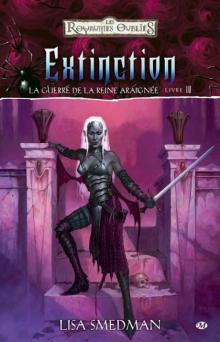 Extinction
Extinction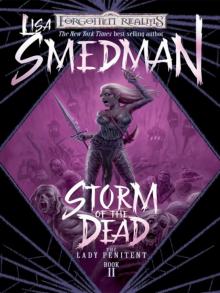 Storm of the Dead
Storm of the Dead Blood Sport
Blood Sport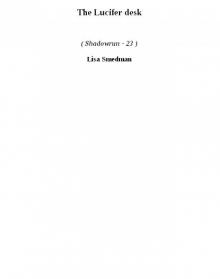 The Lucifer desk (s-2)
The Lucifer desk (s-2)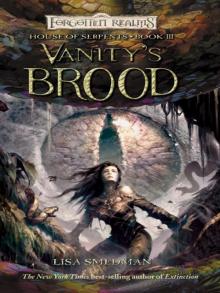 Vanity's Brood
Vanity's Brood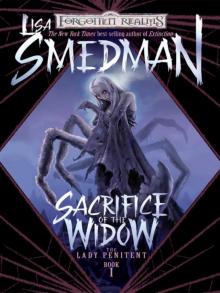 Sacrifice of the Widow
Sacrifice of the Widow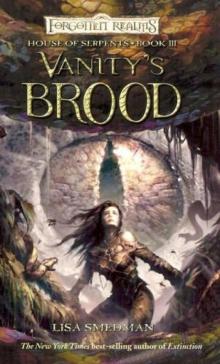 Vanity's brood hos-3
Vanity's brood hos-3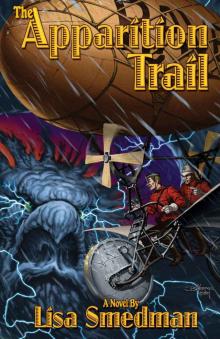 Apparition Trail, The
Apparition Trail, The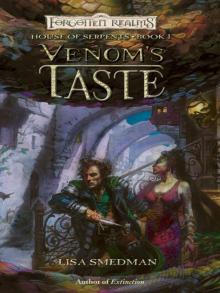 Venom's Taste
Venom's Taste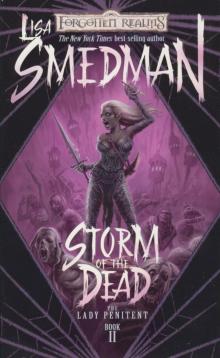 Forgotten Realms - The Lady Penitent - Storm of the Dead
Forgotten Realms - The Lady Penitent - Storm of the Dead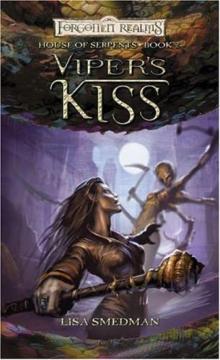 Viper's kiss hos-2
Viper's kiss hos-2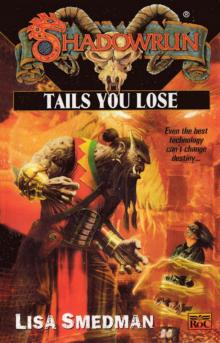 Tails You Lose
Tails You Lose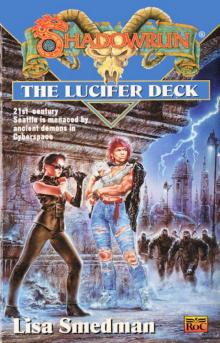 The Lucifer Deck
The Lucifer Deck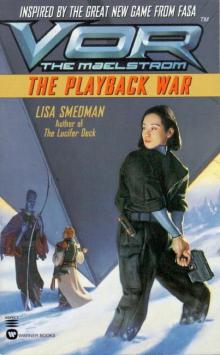 Vor: The Playback War
Vor: The Playback War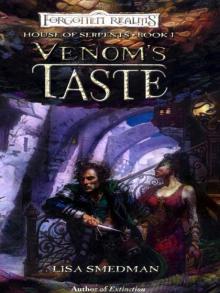 Forgotten Realms - House of Serpents 1 - Venom's Taste
Forgotten Realms - House of Serpents 1 - Venom's Taste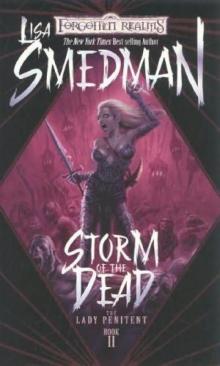 Storm of the Dead зкp-2
Storm of the Dead зкp-2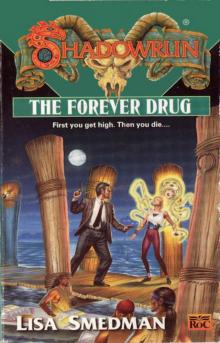 The Forever Drug
The Forever Drug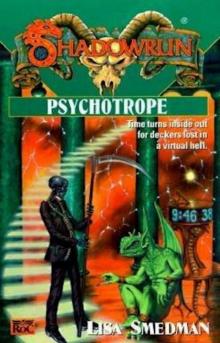 Psychotrope
Psychotrope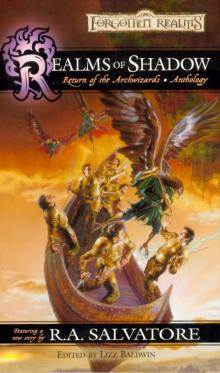 Realms of Shadow a-8
Realms of Shadow a-8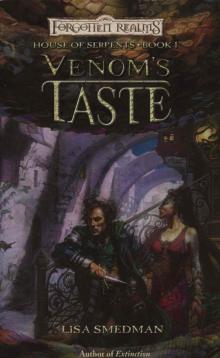 Venom’s Taste hos-1
Venom’s Taste hos-1 Psychotrope s-33
Psychotrope s-33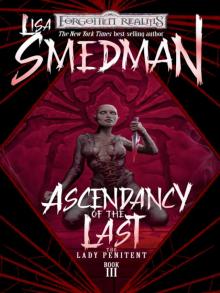 Ascendency of the Last
Ascendency of the Last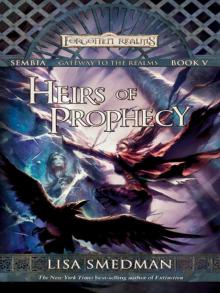 Heirs of Prophecy
Heirs of Prophecy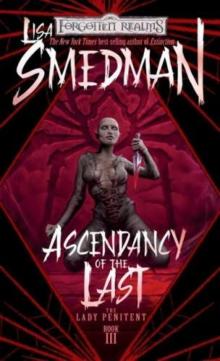 Ascendancy of the Last зкp-3
Ascendancy of the Last зкp-3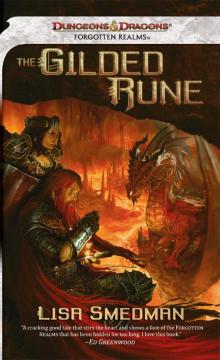 The Gilded Rune (forgotten realms)
The Gilded Rune (forgotten realms)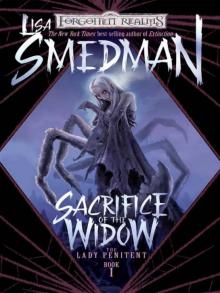 Sacrifice of the Widow: Lady Penitent, Book I
Sacrifice of the Widow: Lady Penitent, Book I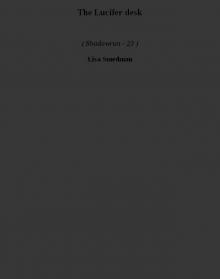 The Lucifer desk s-23
The Lucifer desk s-23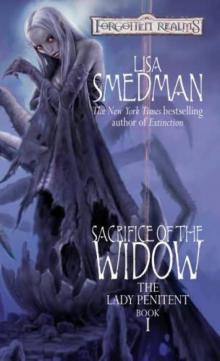 Sacrifice of the Widow lp-1
Sacrifice of the Widow lp-1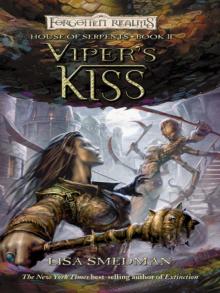 Viper's Kiss
Viper's Kiss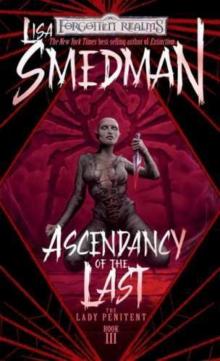 Forgotten Realms - The Lady Penitent - Ascendancy of the Last
Forgotten Realms - The Lady Penitent - Ascendancy of the Last